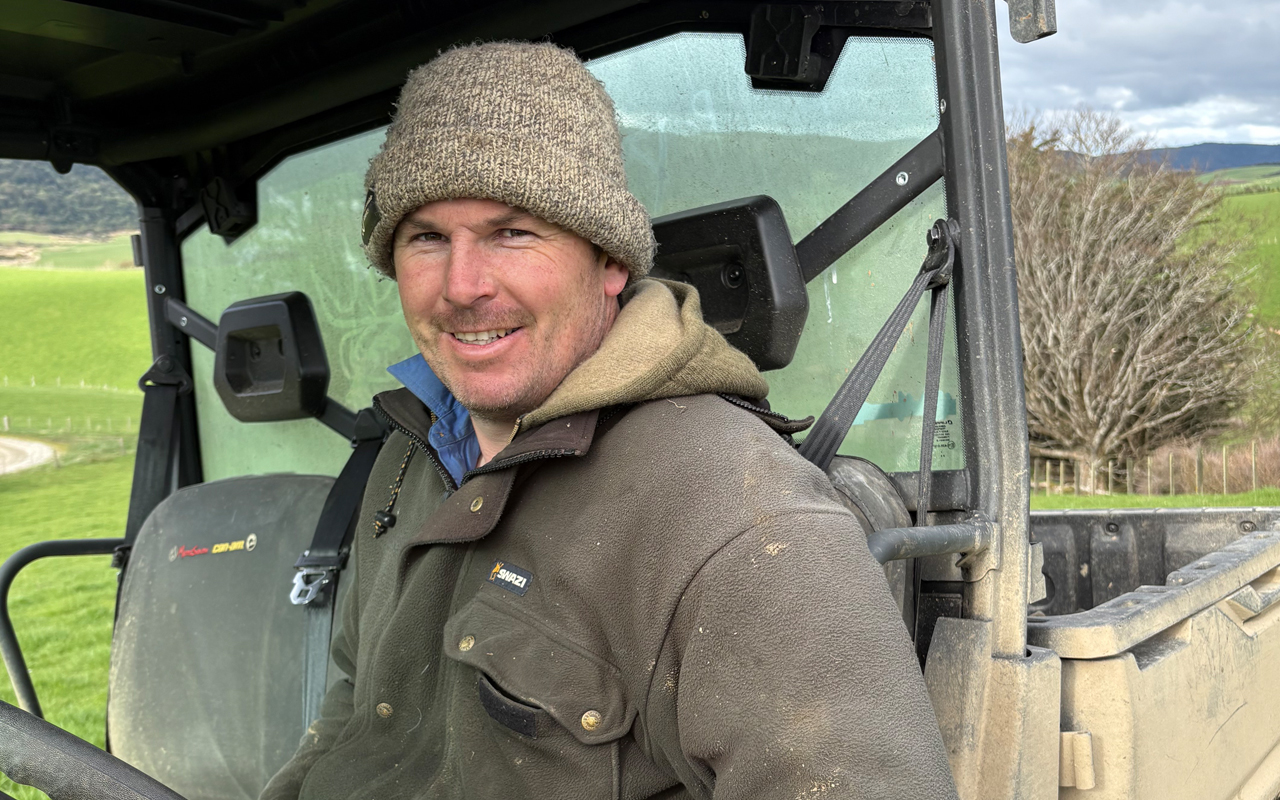Southland Farmer Warns of Carbon Forestry Crisis
27 August 2025, 5:12 AM
 Southland farmer and Federated Farmers Southland meat & wool chair, Dean Rabbidge warns that prime Southland farming land is disappearing into pine trees for carbon forestry. Photo: Supplied
Southland farmer and Federated Farmers Southland meat & wool chair, Dean Rabbidge warns that prime Southland farming land is disappearing into pine trees for carbon forestry. Photo: SuppliedA Southland farmer is sounding the alarm over the rapid spread of carbon forestry, warning that rural communities and New Zealand’s food production are at risk if the Government doesn’t act.
Dean Rabbidge, a fifth-generation farmer near Wyndham, says he’s watching prime sheep and beef country across his region disappear under pine trees - and it’s happening faster than ever.
"It’s pretty heartbreaking what we’re seeing in Southland," says Rabbidge, who farms 700 hectares with his wife and three kids."
"There are some fantastic properties that have been acquired by forestry companies and planted out in pine trees."
"This isn’t marginal land at all - they’re clean, fertile, high-performing farms that would be in huge demand if they were in Canterbury."
Rabbidge says carbon forestry conversions have ramped up in the past six months, as investors rush to capitalise on current Emissions Trading Scheme (ETS) settings.
"We’re talking about beautiful hill country farms being planted in permanent pine."
"These farms underpin our red meat sector and once they’re gone, they’re gone."
Rabbidge says rural communities are already suffering, particularly those reliant on sheep and beef farming.
"You talk to shearing contractors, tailing gangs, sheep handling crews - they’re all forecasting 10% to 15% revenue drops this year.
"Go into Gore and talk to the machinery dealers and they’re saying the same thing.
"The ripple effects go right through our towns and businesses."
Rabbidge warns rural schools, sports teams and volunteer groups were also under threat as farming families are displaced.
"We saw this in the 1990s in Southland when forestry took over in some places - schools closed, towns dried up.
"That was production forestry. This time it’s carbon, and the consequences could be even worse."
Rabbidge said under the Government’s draft rules, only farmland in Land Use Capability (LUC) classes 1 to 5 would be limited to 25% registration in the EMT.
The LUC system classifies rural land based on its physical characteristics and ability to sustain productive use. Class 1 is the most productive while class 8 is the least productive
"None of the farms being targeted for carbon forestry down here are class 1 to 5. They’re nearly all class 6 or 7, and those are left completely exposed."
"A lot of our breeding country is class 6 and 7 - that’s where animals come from before they move on to finishing blocks."
"If we lose that land, the whole New Zealand farming system gets thrown out of whack."
Federated Farmers is currently calling for planting limitations extended to classes 6 and 7.